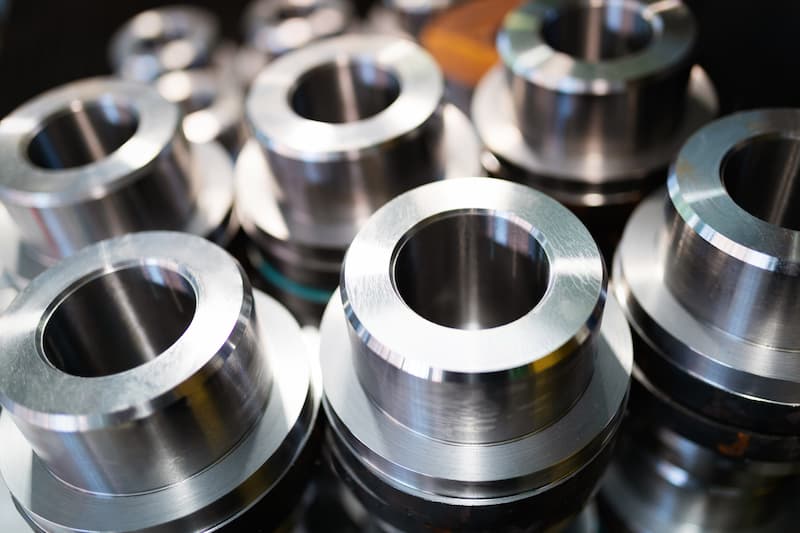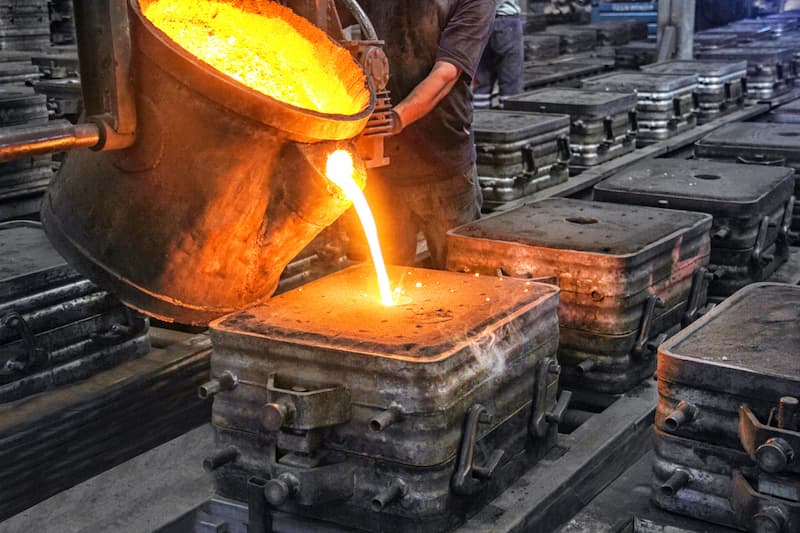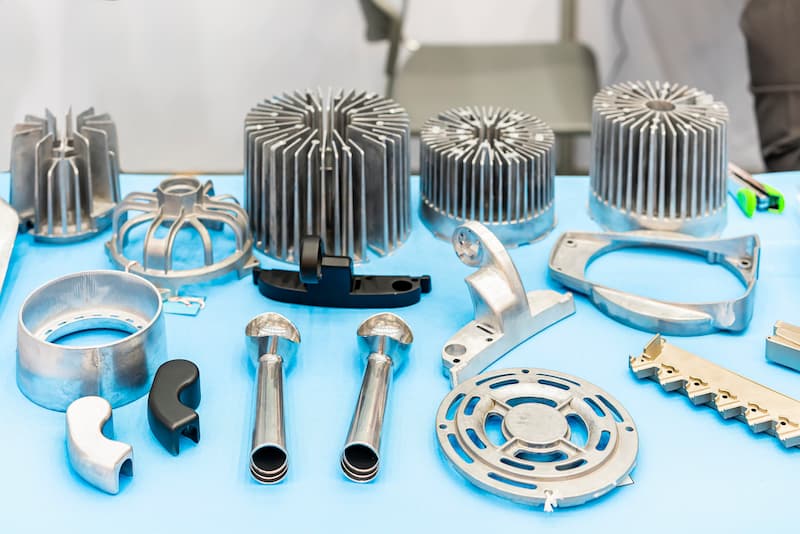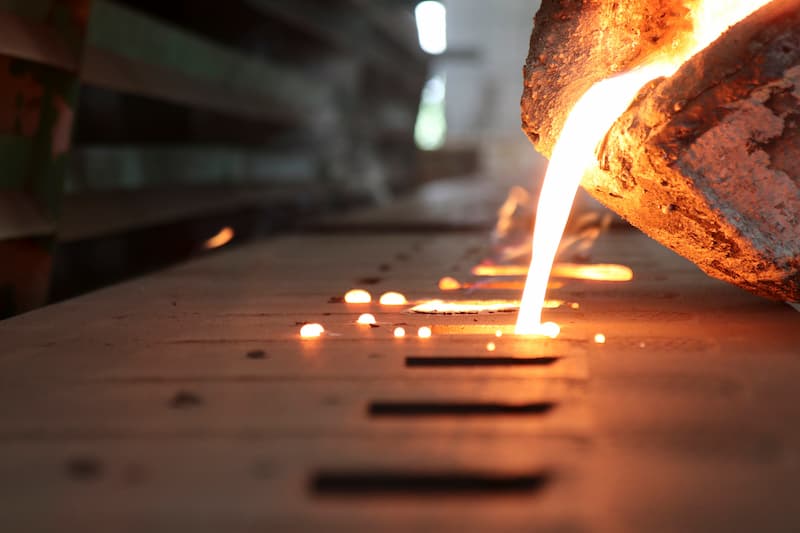Steel VS Aluminium Metal Casting
When it comes to casting, various factors influence the choice of metal. At Dean Group, we predominantly choose aluminium and steel for their unique properties and versatility in many industrial or commercial applications.
By working with metal casting specialists like Dean Group, you can benefit from our expertise and knowledge to determine the best material for your projects. Read on to discover the factors that decide which metal is best for your application.
Steel Metal Casting
At Dean Group, we have extensive experience working with stainless and carbon steel and provide our customers with custom metal casting solutions that suit their specific requirements.
Steel is an excellent material choice for metal casting due to its widespread availability and easy accessibility. Steel is also easy to transport and store, as it is a dense and malleable material that can be easily shaped and formed to meet specific requirements. In addition, steel is widely recyclable, making it a sustainable choice for metal casting.
Steel Properties
Steel is a popular material used in metal casting due to its unique properties, making it an excellent choice for various industrial applications.
Steel is known for its exceptional strength and durability and can withstand extreme temperatures while maintaining its shape and mechanical properties. Additionally, steel is versatile and can be easily machined and finished to meet specific design requirements, making it a popular choice for creating complex components.
Stainless or Carbon Steel?
In metal casting, selecting the right type of steel is crucial to obtain the desired mechanical properties and achieve the best results. Stainless steel and carbon steel are two popular materials used in metal casting, each offering unique properties.
Stainless steel, known for its superior corrosion resistance, is an excellent choice for components exposed to harsh environments. This makes it a popular choice for marine castings and food industry applications.
Carbon steel, on the other hand, offers high hardness and durability while being cost-effective. It is a common material for creating gearboxes, engine blocks, and other automotive components.
Cast Steel Applications
From automotive, renewables, construction and even marine, steel casting is widely used in many industries.
The products commonly manufactured using steel casting are diverse, ranging from larger, heavy-duty parts, such as transmission housings and engine blocks, to intricate components like turbine blades and aerospace components.
One of the most popular applications of steel casting in the automotive industry is the production of cylinder heads, as steel's thermal conductivity allows for efficient thermal management. Other applications include valve bodies and pump housings in the oil and gas industry and propellers in the marine industry.
Case Study: Cloud Cities of Barcelona
The versatility of this material and our casting processes means there are no project specifications we cannot accommodate. One of the more unique applications for our stainless steel casting was to help create the world-renowned Cloud Cities of Barcelona.
This innovative free-standing artwork flows effortlessly at the top of Mirador Torre Glòries, providing visitors with 360-degree cityscape views of Barcelona. The installation required a complex web of polycarbonate panels and wire connections, and we were approached to cast over 6,000 stainless steel node connectors to various specifications that would attach the cables to the panels. Read more about our essential contribution to this impressive architectural casting in our case study.
Aluminium Metal Casting
Aluminium is a popular material in metal casting due to its unique properties. Regarding casting, aluminium is a perfect material choice for creating intricate and detailed components that require high precision and tight tolerances.
Aluminium Properties
Aluminium's unique characteristic is being lightweight, making it a preferred option for manufacturing complex components that need to be lightweight yet strong. In addition to its lightweight properties, aluminium is known for its low density, high thermal conductivity, and excellent strength-to-weight ratio, making it an ideal material for creating heat exchangers and engine components.
This metal also offers excellent machinability, allowing easy shaping and casting precision. Furthermore, aluminium has remarkable corrosion resistance, offering durability and strength in harsh environments.
Cast Aluminium Applications
Aluminium offers several advantages, making it an ideal material for creating high-quality metal castings in various industries. For example, the aerospace industry relies heavily on aluminium castings for airframes, landing gear, and turbine components, as they need to be lightweight yet robust enough to withstand extreme temperatures and pressures. Additionally, the marine industry frequently uses castings for boat components due to the material's resistance to corrosion and excellent machinability.
Dean Group: 50 Years of Metal Casting Expertise
We have established relationships with trusted steel suppliers, ensuring we have access to high-quality materials for our UK Foundry to provide our customers with reliable, cost-effective, and high-quality metal casting solutions.
Our commitment to excellence and our focus on using the latest technologies and techniques ensures that we remain at the forefront of the metal casting industry. Contact us to discover how we will fulfil your project's needs.
Registered in England VAT No: 146307478 Company Registration No: 1062820










